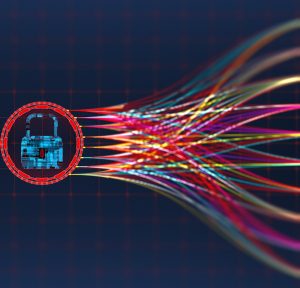 With bitcoin prices rising from the dead over the last few weeks (up nearly 25% from a December 14 low), there’s a degree of renewed excitement regarding blockchain and cryptocurrency. But as general public interest rises and falls, the steady process of creating useful applications and systems for distributed ledger technology continues. The issuing of new patents is one observable part of this process, and as such, it’s worth noting that trading platform tZERO, a portfolio company of the e-commerce giant Overstock, was recently awarded a patent outlining how it may merge legacy trading systems with cryptocurrencies and digital asset technology.
With bitcoin prices rising from the dead over the last few weeks (up nearly 25% from a December 14 low), there’s a degree of renewed excitement regarding blockchain and cryptocurrency. But as general public interest rises and falls, the steady process of creating useful applications and systems for distributed ledger technology continues. The issuing of new patents is one observable part of this process, and as such, it’s worth noting that trading platform tZERO, a portfolio company of the e-commerce giant Overstock, was recently awarded a patent outlining how it may merge legacy trading systems with cryptocurrencies and digital asset technology.
Articles Posted in Distributed Ledger
California Allows Some Corporations to Use the Blockchain to Record Stock Issuance and Transfers
The journey by which the blockchain and its underlying distributed ledger technology (DLT) becomes an everyday aspect of doing business is one of a thousand small steps, many of them legislative and regulatory. In “California’s New Law on Corporate Blockchain Use,” Riaz A. Karamali examines California’s recently signed SB-838, which amends Cal. Corp. Code § 204 (General Corporation Law) and Cal. Corp. Code § 2603 (Social Purpose Corporation Act) to allow certain corporations to use blockchain technology for certain corporate records. (Legislation triggering the formation of a “blockchain working group” that will evaluate the risks and legal implications associated with the use of the technology by state government and California-based businesses was also signed into law.)
Crafting Blockchain Patent Claims to Avoid Enforcement Pitfalls and Maximize Potential Damages
 As we approach 2020, distributed ledger technologies (DLT) appear likely to have a far-reaching, comprehensive impact on our global economy. But core components of that economy—intellectual property rights in particular—sit in tension with DLT. Copyright owners learned this lesson with the advent of BitTorrent. Patent owners will face similar threats from DLT-based computing platforms executing programs referred to as “smart contracts.” To date, less than 500 U.S. patents have issued with the term “blockchain” in a claim, and none appear to have been litigated. As such, many nuances of DLT patent enforcement have not yet manifested. Nonetheless, even a cursory review of current case law reveals the road to a decentralized utopia is laden with patent-law potholes.
As we approach 2020, distributed ledger technologies (DLT) appear likely to have a far-reaching, comprehensive impact on our global economy. But core components of that economy—intellectual property rights in particular—sit in tension with DLT. Copyright owners learned this lesson with the advent of BitTorrent. Patent owners will face similar threats from DLT-based computing platforms executing programs referred to as “smart contracts.” To date, less than 500 U.S. patents have issued with the term “blockchain” in a claim, and none appear to have been litigated. As such, many nuances of DLT patent enforcement have not yet manifested. Nonetheless, even a cursory review of current case law reveals the road to a decentralized utopia is laden with patent-law potholes.
 Internet & Social Media Law Blog
Internet & Social Media Law Blog


